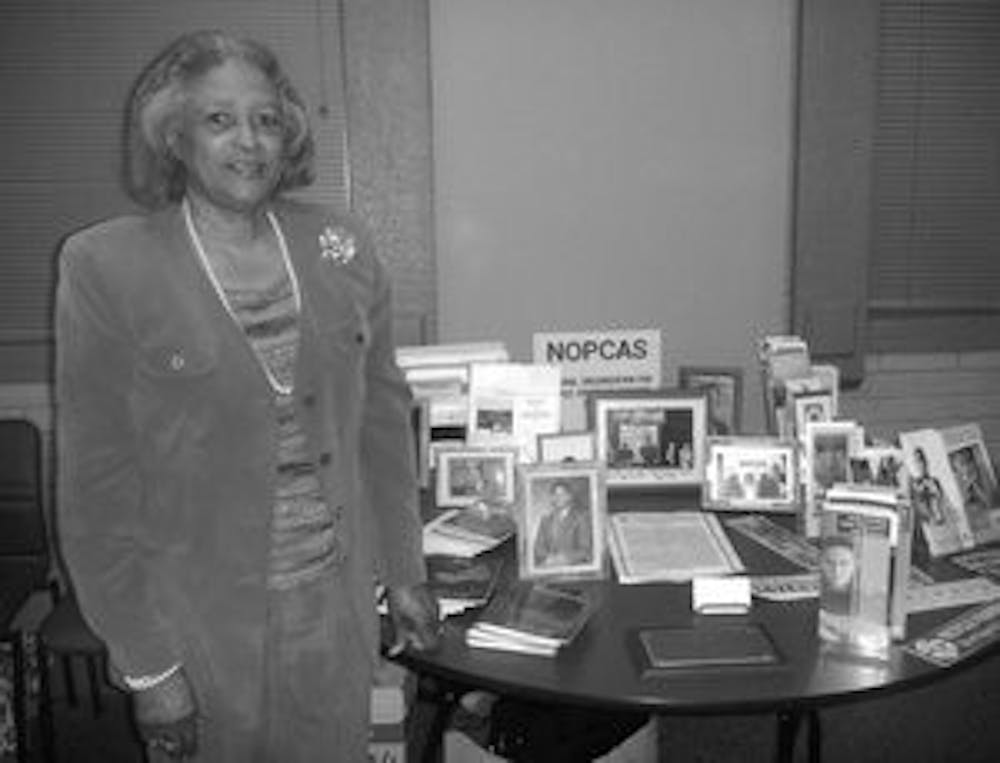On Monday, Oct. 1, the East Alabama Medical Center's Health Resource Center in Opelika hosted a speaker whose focus on the effects of depression and suicide helped show the importance of support groups in the community.
Special guest Doris Smith shared her story with the audience in hopes it would save a life or inspire a life that has been touched by suicide.
Smith of Atlanta lost her only son Oct. 4, 1992, to suicide. His name was Mark.
Smith said 27-year-old Mark was a multi-talented and active person who seemed to have it all together. However, Smith did not know her son was the victim of a mental illness she now believes to have been undiagnosed and untreated depression. She had always thought Mark was shy and reserved, but never suspected he was depressed.
Just days after finding Mark with a self-inflicted gunshot wound to the head Sept. 30, she lost him to brain swelling caused by the wound. Smith donated all of his organs.
Although she lost her only son, she did not lose her purpose. She has now become an advocate for organ donations, suicide and bereavement support groups, as well as campaigning against clinical depression, particularly in the African-American community where, after her loss, she faced many stigmas that suggested suicide and depression discriminated based on different factors.
Doris Smith said she wants Mark's life to be a lesson to all that suicide and depression do not discriminate against race, age, economic status, education or gender. She said it is important for people to understand clinical depression is a serious illness and that learning the signs and symptoms can put a stop to this disease and put an end to the loss of lives.
"I did not know that depression is a disease and can be treated," Smith said. "I did not know that you could get counseling and treatment."
Smith said people should know what resources are available for them in their community and utilize them if needed.
Although not all depressed people are suicidal, Smith said 90 percent of people who commit suicide have a diagnosable and treatable psychiatric illness such as depression. In situations such as these, intervention can be the difference between life and death, so people should take the time to know the signs of depression, such as changes in eating or sleeping patterns, withdrawal from family and friends, mood changes and loss of interests in favorite activities.
Fifty to 75 percent of all suicidal people give some warning of their intentions to friends and families, so every word should be taken seriously.
At Auburn University, students can make an appointment or drop by Student Counseling Services in the Auburn University Medical Clinic located on Lem Morrison. There is no charge for counseling center services.
When people are experiencing symptoms of depression, it is important for them to know they are not alone, and there is someone they can talk to.
Those who have been touched by suicide or would like to become an advocate of anti-depression and suicide campaigns can visit the American Foundation for Suicide Prevention (AFSP) website at afsp.org and sign up to participate in an "Out of the Darkness Walk."
These walks are two to five miles in communities nationwide to help raise funds to treat, educate and research clinical illnesses that lead to suicide.
Beginning Spring 2013, campus organizations can start "Out of the Darkness" campus walks by visiting campuswalks.org and registering their teams.
Do you like this story? The Plainsman doesn't accept money from tuition or student fees, and we don't charge a subscription fee. But you can donate to support The Plainsman.




